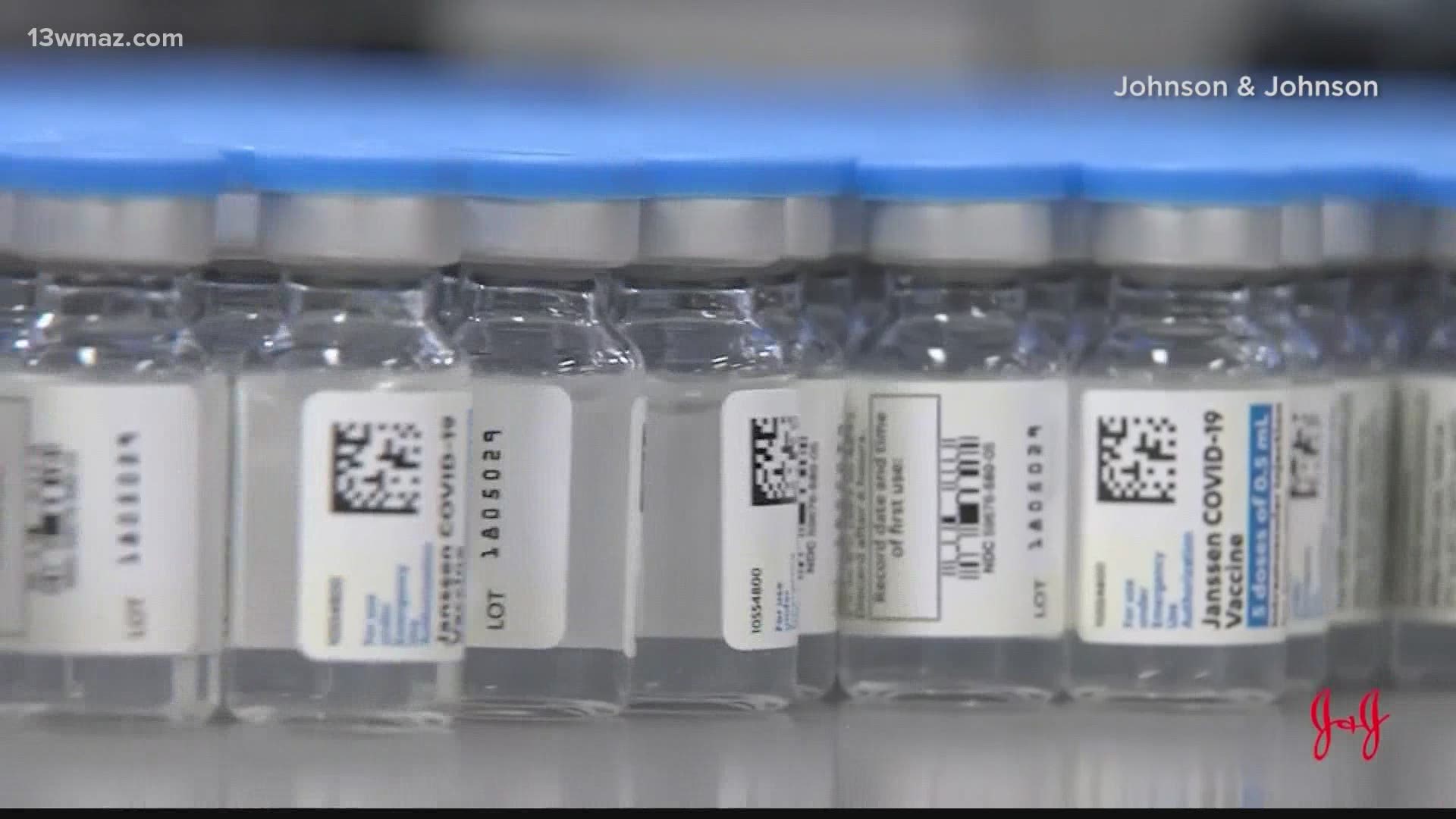MACON, Ga. — A third vaccine will soon be in the mix here in Georgia after Johnson & Johnson's single-dose vaccine received federal emergency use authorization from the FDA over the weekend.
Gov. Brian Kemp announced 83,000 doses of their vaccine are now headed to the Peach state.
"Supply issues have been a constant hindrance to everybody's vaccination ability throughout this process," said Michael Hokanson with the North Central Health District.
He says this third vaccine should help, however, they don't know when or if the health department will get a shipment of the new vaccine.
"As long as there is more vaccine out in the community, whether we have it or another provider has it, we just want more opportunities for people to be vaccinated," he said.
The Pfizer and Moderna vaccines, both already approved and in circulation, are mRNA vaccines. That means a portion of the virus' genetic material is introduced into the body to show cells how to make a protein that initiates an immune response.
Johnson & Johnson uses a different approach; they are using a viral vectored vaccine.
"Basically, they take adenovirus, which is a common cause of upper respiratory infections and things like that, and they weaken it so it can't make you very sick. Then, they introduce a portion of the coronavirus genetic material into the adenovirus. Then, the adenovirus basically acts like a delivery vehicle to get that portion of the coronavirus genetic material into your cells," said Dr. Jennifer Hoffman with Coliseum Medical Centers.
She says even though this vaccine is different than Pfizer's and Moderna's, you don't need to pick and choose which one you get.
"My recommendation is to get whatever you can get your hands on and be happy to have it," said Hoffman.
The Johnson & Johnson vaccine is a single-dose vaccine that does not have to be frozen, making it easier for providers to store than Pfizer.
"The Johnson & Johnson vaccine was 100& effective in preventing hospitalization and death. Now, it's true it was 72% effective overall, so yeah, you might get a mild case [of COVID-19], but you're not going to get something that's going to land you in the hospital," she said.
She says that 72% efficacy is better than some of the flu shots in circulation in a given year.
"Some years, influenza shots can be only 40-50% effective. It kind of depends on how well we guess what strains of influenza are going to be prevalent," said Hoffman.
Hokanson says some places may opt to give Johnson & Johnson's vaccine to younger people.
"Chances are there will be some entities that choose to use the Johnson & Johnson one for more healthy individuals, rather than those at high risk for complications from COVID just because of that efficacy difference," he said.
Hokanson says the fact that it requires only one dose will also speed along the process, especially as Phase 1A+ opens to new groups, like teachers, on March 8.

